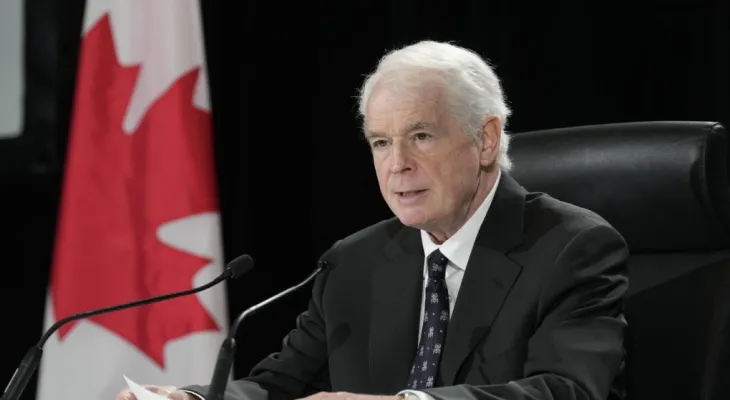Search here
Newspaper
Search here

Arab Canada News
News

Published: February 18, 2024
The liberal government missed the deadline set to respond to the findings and recommendations of Judge Paul Rouleau, who led a federal investigation into the government's first and only use of the Emergencies Act in 2022.
One year ago, Rouleau issued his final report on the government's decision to declare a state of public order emergency during the "Freedom Convoy" protests, which shut down streets around Parliament and closed international border crossings.
Rouleau found that the government had justification for activating the law, but he made 56 recommendations for the future, including several proposed amendments to the law itself.
He ordered the government to respond to those recommendations within 12 months, specifying which would be implemented and providing a timeline.
The Office of the Minister of Public Safety says it will have more information on the government's response "soon" and did not provide a justification for missing the deadline set by Rouleau.
One possible reason for the delay is the January federal court decision that contradicts Rouleau's findings, describing the government's activation of the Emergencies Act as a violation of the Canadian Charter of Rights and Freedoms.
Prime Minister Justin Trudeau declared the emergency just over two years ago, after thousands of protesters entrenched themselves in the streets of downtown Ottawa for weeks. They used large platforms and other vehicles in a demonstration opposing Trudeau’s government and public health restrictions due to the coronavirus.
The intermittent protests also led to the closure of border crossings with the United States and various provincial legislatures.
The emergency declaration granted extraordinary powers to governments, police, and banks to limit protesters' rights to freedom of assembly, freeze bank accounts, and compel private companies to cooperate, all in an effort to end the demonstrations.
This was the first time the legislation had been activated since it replaced the War Measures Act in 1988, meaning the various investigations and legal challenges that followed will set a precedent for the legal limits of its use in the future.
When Trudeau relied on the Emergencies Act, it led to two investigations merged into the legislation: a federal investigation and a parliamentary committee tasked with studying how the extraordinary powers granted to the federal government were used.
The committee was formed in March 2022 and has met more than twenty times but has yet to produce a substantive report. Its work was hindered by the massive backlog of documents needing translation into both official languages before being reviewed.
The translation work is expected to cost hundreds of millions of dollars, and MPs have expressed frustration over the delay.
The federal court ruling complicated matters further this week, with Conservative MP Glen Motz calling for several ministers to be questioned by the committee for a second time.
He also requested more information on the legal advisory council used to make the decision to use the legislation to try to suppress the protests.
Motz said at a committee meeting on Tuesday: "Was this legal, did they follow the rule of law, was it consistent with the Charter? These are all things we need to examine as a committee."
Comments